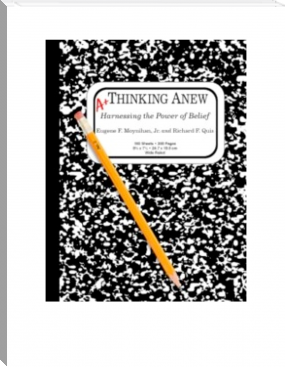mindset of a hero - Dr. Olusola Coker (desktop ebook reader txt) 📗

- Author: Dr. Olusola Coker
Book online «mindset of a hero - Dr. Olusola Coker (desktop ebook reader txt) 📗». Author Dr. Olusola Coker
Your hero is someone who stands out from the crowd by demonstrating what you value in an outstanding way. Your hero fulfills your ideals of beauty, goodness, and truth.
Their lives reverberate with a truth that shapes how you perceive the world or how you want it to be.
It's fine to be influenced and inspired by your heroes.
Of course, we all want to be in charge of our own lives. But can you truly live a life without being influenced? Influencer marketing's explosive rise would strongly suggest otherwise.
One strategy to achieve your goals is to follow a good example. Allowing yourself to be inspired, on the other hand, will enable you to create something of enormous value, whether it is your work or an experience. When you allow yourself to be inspired, you won't lose a piece of yourself because heroes help you become a truer, better version of the person you want to be.
"Their lives communicated something that awakened up a part of my spirit that had always been there, but possibly dormant," one acquaintance said of learning about her idols.
Realizing your heroes can assist you in discovering your life's deeper meaning and purpose. "Heroes help us develop the secrets to unlocking our highest potential as human beings," writes Dr. Scott Allison for Psychology Today.
"Heroes can help us elevate our eyes a little higher," writes LaBarge. Allowing their ideas to enter your head and emotions gives you something rather than taking something away.
My own hero gave me a higher calling in life and a clearer path to follow to get there.
Are you doubtful that someone is deserving of the title of 'hero'?
The distinction between inspirational impact and blind adulation is significant.
Putting someone on a pedestal without a rational assessment isn't a good thing. It's perfectly reasonable to be cynical about people who appear heroic - no one is perfect, and today's society is particularly adept at pointing out people's shortcomings online. Every hero has his or her flaws.
It is the human connection that these flaws provide that allows heroes to actually inspire and push us to work toward being better versions of our true selves.
"The elation we feel while watching a heroic deed converts us into believing we are capable of heroic acts ourselves," says Dr. Scott T. Allison.
Who is your personal hero?
I encourage you to consider the five people who have the most influence over your personal and professional decisions.
Do you think I'd label these people my "heroes"?
If you answered yes, consider what makes them heroic and how you can emulate them. If not, consider what type of person you want to become. Your hero is as one-of-a-kind and multifaceted as you. Try to come up with someone who embodies those qualities in a big and attractive way.
"Heroes help you become a truer, better version of the person you aspire to be," says a grotto quote image.
Heroism and Its Psychology
Heroism and Its Psychology
Are heroes created or born?
Heroes touch our hearts, inspire us, and cause us to rethink our perspectives on the world. Just look at how many superhero movies are released these days to understand how much our culture cherishes and admires heroes. What drives some people to act heroically in the face of adversity?
"True heroism is amazingly calm and unfussy. It is not the desire to outperform all others at all costs, but the desire to serve others at all costs." Professional tennis player Arthur Ashe
Across cultures, heroism is highly regarded, but how do we define a hero? What motivates some people to take heroic measures?
While scholars have a good knowledge of what motivates people to do acts of evil, our understanding of what motivates people to commit acts of heroism is less clear, and conceptions of heroism may range from person to person.
Heroism involves a behavior or action on behalf of another person or for a moral cause, according to the Heroic Imagination Project (HIP), a non-profit organization dedicated to teaching people how to become heroes in their everyday lives.
Expert Definitions of Heroism
What does heroism mean to psychologists and other heroic researchers? Here are just a few of the numerous recommendations made by various experts:
"To put it another way, the key to heroism is a concern for others in need—a concern to defend a moral cause, even if it means taking a personal risk, and doing so without expecting to be rewarded." "What Makes a Hero?" by Philip Zimbardo 2
"We discovered that people's perceptions of heroes tend to follow a predictable pattern. We determined that heroes are seen to be either extremely moral or highly skilled, or both, after polling a number of people. Heroes, in particular, are thought to possess eight characteristics, which we refer to as The Great Eight. Smart, strong, resilient, selfless, loving, charismatic, dependable, and inspiring are some of these characteristics. It's rare for a hero to have all eight of these traits, although most heroes have a majority of them." —"Our Definition of 'Hero,'" by Scott T. Allison and George R. Goethals3
"...there doesn't appear to be a single distinguishing characteristic that defines heroes and heroic behavior. Heroes are defined in a variety of ways, and there are no hard and fast rules in this social category. Fiske & Taylor, 2008; Hepper et al., 2012) propose that the hero notion is constructed up of a jumble of traits arranged around prototype category members. Bravery, moral integrity, courage, protecting, conviction, honesty, unselfish, self-sacrificing, selfless, determined, saves, inspiring, and helpful are the most paradigmatic features of heroes.
Other definitions of heroism divide it into categories or degrees of personal danger and sacrifice. Some are major gestures, such as risking one's life to save another, while others are little, everyday acts aimed at assisting another human being in need.
Psychologist Frank Farley distinguishes between what he refers to as "big H" and "little H" heroism. Big H heroism entails a significant danger, such as injury, imprisonment, or perhaps death. Small h heroism, on the other hand, is doing things that many of us do on a daily basis, such as assisting others, being nice, and standing up for justice. We don't usually have to put our lives on the line for these things. 5 Reasons Why People Show Heroism
Now that we have a better understanding of what heroism is, the question becomes why people become heroes in the first place. Is there anything these people have in common when it comes to heroism? Danger-taking conduct and generosity, according to Farley, are two fundamental components behind big acts of heroism that carry a risk of personal injury.
People who put their life on the line in the service of others are more likely to take bigger risks and have a lot of compassion, generosity, empathy, and altruism.
According to a study released in 2013, researchers have long known that people and animals are more likely to help individuals to whom they are genetically related, a concept known as kin selection.
By assisting people with whom we share DNA, we increase the possibility of those genes being passed down to future generations.
In other circumstances, we assist others in the hopes that they will assist us in the future, a concept known as reciprocal altruism. But what about acts of generosity that aren't based on aiding family or expecting a reward?
Situational, cultural, and personality factors can all play a part in such situations. People frequently claim that they don't consider themselves as heroes after performing heroic acts, claiming that they were merely doing what anyone in that situation would have done. When faced with life-or-death crises, the strength and urgency of the situation might motivate certain people to act.
Heroism May Be Influenced by Personality
The same circumstances that drive some people to heroic acts might also prevent others from assisting. When a crisis occurs in a crowd, we often fall into the trap of inaction, expecting that someone else will step in to help, a phenomenon known as the bystander effect.
Because the presence of others diffuses personal responsibility, we believe that the hero will be assumed by someone else. Some persons may have personality qualities that predispose them to act heroically and altruistically.
According to a study conducted in 2016, persons who have a mindset that drives them to react boldly and morally in tough situations are more likely to act quickly and subconsciously when an emergency happens.
One of the most pressing issues for scholars is the age-old argument over nature vs. nurture. Is heroism something that we are born with or something that we can learn? It depends on whatever expert you consult, but here's one point of view to consider:
"Some people suggest that humans are born good or bad; I believe that is nonsense," Philip Zimbardo says. "We are all born with this incredible capacity to be anything, and we are shaped by our circumstances—by our family, culture, or the time period in which we happen to grow up, all of which are random events; whether we grow up in a war zone versus a peaceful environment; whether we grow up in poverty versus prosperity. As a result, each of us may be capable of doing terrible things. But we all have an inner hero within us who, when called to action, is capable of doing immense good for both.
Heroism's Characteristics
What distinguishes a hero?
Definition
12 Distinctive Features
What qualities or characteristics distinguish a hero? Is there such a thing as a hero gene? According to a new study, the answer could be found in the type of heroism we're talking about.
According to a study released in 2010, those who have performed one-time acts of bravery (such as running into a burning building or rescuing someone from the path of an oncoming train) are not significantly different from non-hero control groups.
People who participate in lifelong heroism, on the other hand (for example, professional nurses who constantly console the sick and dying) share a number of fundamental psychological traits such as empathy, nurturance, and a desire to live by a moral code.
1 Heroism's Definitions
Within the field of psychology, the scientific study of heroism is a relatively new issue of interest.
Researchers have presented several definitions of what makes a hero, but the majority of them indicate that heroism entails prosocial, altruistic activities that include some personal danger or sacrifice.
However, according to researchers Franco, Blau, and Zimbardo, heroism entails more than this. Heroism, according to





Comments (0)